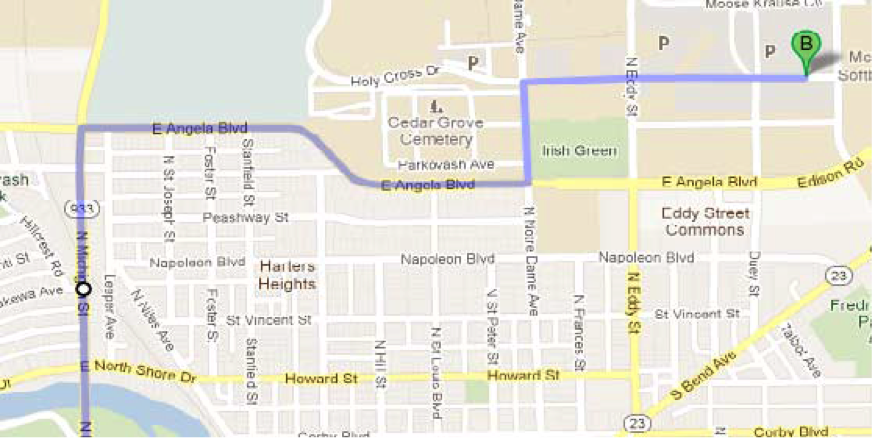The University of Notre Dame’s Human Development Conference (HDC) is an annual, student-led conference that provides a platform for dialogue in which students from many academic backgrounds and disciplines can share their development-focused research. HDC strives to empower passionate students to learn more about a wide range of topics and network with other student researchers from across the country and the world.
HDC 2018 Conference Schedule
Unless otherwise noted, all events will be occurring in the Hesburgh Center for International Studies
Friday, February 23rd
1:00pm
Registration Opens
2:00pm
Keynote Address: A Conversation with Ray Offenheiser
3:15pm - 3:45pm
Public Reception
3:45pm - 5:15pm
1st Panel Session
Panel A (Auditorium)
Acknowledging Personhood: Building Networks of Trust and Compassion in Healthcare
Human-centered approaches to development requires trust, compassion, and awareness in order to place the individual at the center of development. This panel explores the acknowledgement of human dignity from unique perspectives in the field of healthcare.
Moderated by Marie Donahue (Notre Dame Haiti Program Director, University of Notre Dame)
-
Compassionate Care in South-Eastern Nigeria: Perceptions and Obstacles
Rosemary Agwuncha, University of Notre Dame -
The State of Trust and Healthcare Utilization in Post-Ebola Sierra Leone
Tommy Emmet, University of Notre Dame -
Self-Perceptions of Disability and Impairment in an Indian Prosthetic Population Using Jaipur Foot Technology
Litany Esguerra, University of Illinois at Chicago -
An Amputee's Decision: Desirability and Human Agency When Pursuing Prosthetic Care in Ghana
King Fok, University of Notre Dame
Panel B (C102)
Human Strength: Understanding the Significance of Resilience
In pressing situations, people often demonstrate more resiliency than we may believe possible. This panel looks at different forms of human strength and agency in various circumstances, from relocation to social networks.
Moderated by Karen Kray (Assistant Director of University Relations, SIT Study Abroad)
-
Relocation, Resistance, and Resilience: The Role of Government and Squatter Community Responses for Urban Development in Kathmandu
Reilly Brooks, Rice University -
Resilience Networks Used by Social Care Workers
Grace Curtin, University of Notre Dame -
Multifaceted Unity in Colomoncagua: Resilient Development in a Salvadoran Civil War Refugee Camp from Psychological and Nonpsychological Perspectives
Andrew Grose, University of Notre Dame
Panel C (C103)
The Influence of Land and Geography on Community and Culture
Geography plays a significant role in shaping and affecting societies, cultural identity, movement, environmental change, and politics. This panel explores the challenges and issues that land brings to communities in different developmental contexts.
Moderated by Sara Sievers (Associate Dean for Policy and Practice; Associate Professor of the Practice, Keough School of Global Affairs, University of Notre Dame)
-
How Project Failures Continue to Leave Kenyans Without Water Access: A Case Study of Water Projects in Kombewa Sub-Locations in Kisumu County
Chanel Martinez, Barnard College -
Ancient Reservoirs: How Water Management Influenced Community in Mesa Verde National Park, Colorado
Katherine Portman, University of Notre Dame -
Land Insecurity in Gulu, Uganda: A Clash Between Culture and Capitalism
Zachary Slotkin, George Washington University -
Geopolitical Relations: Uganda’s Role in the Development of the River Nile
Jordan Williams, George Washington University
5:30pm
Networking Session for Conference Participants and Informal Dinner
Conference participants will have the opportunity to speak with students in the Masters in Global Affairs program in Notre Dame’s Keough School of Global Affairs, as well as other participants and members on the HDC Committee.
Saturday, February 24
9:30am
Coffee and Light Breakfast with Poster Spotlight
-
The Future of the Chemical Weapons Convention
Jillian Fox, Denison University -
Reconciling the Traditional Balinese Balance with Modern Day Development
Lauren Hudson, University of Iowa
10:30am-12:00pm
2nd Panel Session
Panel A (Auditorium)
Choice or Tradition: The Role of Social and Cultural Dynamics in Global Medicine
Culture and tradition heavily inform all aspects of modern medicine. This panel examines the factors influencing patient and physician decision-making in distinct societies around the globe, further addressing how traditional forms of medicine remain fundamental in the field of global healthcare.
Moderated by Paul Perrin (Director of Monitoring and Evaluation, Notre Dame Initiative for Global Development; Concurrent Associate Professor of the Practice, Keough School of Global Affairs, University of Notre Dame)
-
The Impact of Cultural Knowledge on Healthcare Choice: Investigating Traditional Chinese Medicine in a Modern World
Lily Falzon, University of Notre Dame -
Maternal Healthcare in Uganda: Assessing the Choice of Delivery Sight
Abigail Midlige, University of Notre Dame -
Health Decision Making Among Mexican Medical Students: Exploring Habits of Cigarette Smoking and Perceptions of Health Professionals in Puebla, Mexico
Lauren O’Connell, University of Notre Dame
Panel B (C102)
Like Mother, Like Child: Maternal Health and Development
International development is dependent upon the healthy and dignified development of mothers and their children. This panel discusses issues for mothers from reproductive rights to child development throughout generations.
Moderated by Terence Johnson (Joe and Deborah Loughery Assistant Professor in Economics and Human Development, University of Notre Dame)
-
Early Maternal Touch and Responsiveness Predict Later Child Self-Control
Claire Gorman, University of Notre Dame -
Polluted Care: The Complexities of Reproductive Health and Foreign Aid in Nepal
Ava Hartmann, George Washington University -
Intergenerational Health Transmission in Uganda - its Moderators and Persistence
Gege (Julia) Ran, University of Chicago
Panel C (C103)
Addressing Her Barriers: A Gendered Perspective on Inclusive Development
Women occupy a central role in the discussion and promotion of international development. These panelists investigate barriers women face as migrants and refugees, offering insights to bring about greater inclusivity.
Moderated by Holly Rivers (Associate Director, Kellogg Institute for International Studies, University of Notre Dame)
-
Gender and Migration: A Gender-specific Study of Latin American Migration in the United States
SaraJane Renfroe, Rollins College -
Developing Effective and Inclusive Aid Programs: Outreach to Female Refugees
Rachel Warne, University of Notre Dame
12:00pm-1:00pm
Lunch with Poster Spotlight
-
Chance the Rapper as Chicago's Prophet: An Intersection of Rap, Religion, and Race
Sarah Curtin, Denison University -
Health Literacy Skills of Aging Populations and Its Impact on the Prevention of Cardiovascular Disease in Switzerland
Peter Gorman, DePauw University
1:00pm-2:30pm
3rd Panel Session
Panel A (Auditorium)
Money as a Tool? Financial Access and Inclusion in Development
Money is a tool, yet it does not exist in a vacuum. How do culture, religion, and inequality impact finance and economics, and vice versa? This panel addresses the complex yet significant role money plays in the developing world.
Moderated by Melissa Paulsen (Associate Director of Education and Training Programs, Notre Dame Initiative for Global Development; Concurrent Assistant Professor of the Practice, Keough School of Global Affairs, University of Notre Dame)
-
Islamic Finance in Malaysia: Capitalist Ethics of the Homo Islamicus
Cengiz Cemaloglu, Harvard University -
The Gender Gap in Mobile Money Services in Arusha, Tanzania
Claire Danes, University of Notre Dame -
Bricks & Bondage: How Conditional Cash Transfers can Eliminate Child Labor
Sema Hasan, Lewis & Clark College
Panel B (C102)
The ‘I’ in Policy: Understanding the Relationship between Policy and the Individual
Effective policy implementation is necessary to foster development, yet oftentimes the perspectives of those directly impacted can be overlooked. This panel explores policy and policy effectiveness from the lens of those most affected in diverse development contexts.
Moderated by Susan Ostermann (Assistant Professor of Global Affairs, Keough School of Global Affairs, University of Notre Dame)
-
A Comparative Case Study of American and Ugandan Refugee Policies
Anna Feins, Boston College -
From Prophecy to Policy: The Christian Zionist Lobby and its Effect on Trump’s Ultimate Deal
Kate Knight, Rollins College -
Perceptions of Policy Effectiveness: Exploring the Impact of HIV/AIDS Workplace Policy in Ghana
Rahul Ramani, University of Notre Dame
Panel C (C103)
Reassessing the Status Quo: New Perspectives on Combating Challenges to Development
The challenges of domestic violence, ecological protection, and rural development contain a multitude of actors and perspectives. This panel questions preexisting approaches to longstanding problems, and addresses the growing challenge of creating sustainable solutions in developmental contexts.
Moderated by Steve Reifenberg (Associate Professor of the Practice of International Development; Co-Director, Integration Lab, Keough School of Global Affairs, University of Notre Dame)
-
Peleando con el Patriarcado: an Examination of Government Centers Available for Men and Women Involved in Domestic Violence in Santiago, Chile
Olivia Gonzalez, Arizona State University -
NGOs and Sustainable Livelihoods: Lessons from Ecotourism in Indonesia
Chloe King, George Washington University -
Innovative Rural Development Strategies in China
Joshua Pine, University of Notre Dame
2:30pm
Break with Poster Spotlight
-
Retelling Histories: Understanding the Effect of Truth Commissions on Political Activism
Laura Rossi, University of Chicago -
The Patriarchy Knows No Bounds: The Intersection of Gender and Islam in Kosovo
Alicia Strong, Wesleyan University
3:00pm-4:30pm
4th Panel Session
Panel A (Auditorium)
The Challenge of Change: The Impact of Social Contention on Localized Development
This panel examines the factors which influence economic, political, and social change through the concentrated study of distinct regions. Presenters take an in-depth look at the complexity of localized development as it shifts over time.
Moderated by Rachel Tomas Morgan (Associate Director; International Engagement Director, Center for Social Concerns, University of Notre Dame)
-
Factors that Explain Changes in the Human Development Index of China Post and Pre Reform
Ablavi Yann-bioni Alagno, Saint Mary’s College -
Pie Adentro, Pie Afuera: The Impact of Upper Class Return Migration on Nicaraguan Society
Brianna Johnson, University of Southern California -
The Culture of Narco Trafficking and its Effects on Youth Identity: a comparative analysis of Rosario, Argentina and Havana, Cuba
Jenna Kapp, University of Massachusetts Lowell: -
The Perspective of Colombian Businesses: labor-market reincorporation of ex-guerrilla members
Claudia Serrano, University of Notre Dame
Panel B (C102)
The Global Backyard: The Intersection of Faith and Conflict in a Modern World
With our increasingly connected world come increasingly complex realities. This panel explores how faith shapes, and is shaped by, globalization and conflict in developmental settings.
Moderated by Rev. Robert Dowd, CSC (Director, Ford Program in Human Development Studies and Solidarity, University of Notre Dame)
-
Globalization Strikes Balinese Hinduism
Blake Lapin, Claremont McKenna College -
How Christians in Malaysia combat religious persecution: methods and critiques
Josiah Ponnudurai, University of Notre Dame -
La Virgen de la Candelaria: An Andean Case Study in Catholic Inculturation
Sadie Yates, University of Notre Dame
Panel C (C103)
Expanding Our Global Reach: Bridging the Gap in Rural Healthcare
Healthcare is a basic human right for every individual, yet a complex network of problems can oftentimes impede access to quality care. This panel takes an in-depth look at the challenges to improving healthcare outcomes and delivery in rural contexts around the globe.
Moderated by Steve Reifenberg (Associate Professor of the Practice of International Development; Co-Director, Integration Lab, Keough School of Global Affairs, University of Notre Dame)
-
Community Health Workers and Mental Health Care Delivery in Rural Mexico
Allison Hogan, University of Notre Dame -
A Lottery of Lament: How Access to Care is Left to Chance for Rural Cancer Patients in Tanzania
Luke Maillie, University of Notre Dame -
Mapping the Future: Contrasting Rural and Urban Cuban Challenges to Preventative Care and the Future through Participatory Scenario Planning
Dan Olivieri, University of Notre Dame
4:30pm
Break with Poster Spotlight
-
Secret Agents and Agency: Affective Spaces in Domestic Terrorism
Emma Gardner, University of Chicago -
Black Souls in Male Skins: An Exploration of Four Black Men’s Performances of Masculinity and Perceptions of #PatriarchyMustFall
Justin Brooks, Morehouse College
5:00pm-6:30pm
5th Panel Session
Panel A (Auditorium)
Redefining Mediums: Art, Empowerment, and Driving Individualism
Human development cannot be confined to one medium. Dignity, humanity, and identity can all be expressed through art. This panel explores the unconventional yet powerful approaches that exist within a redefined spectrum of development.
Moderated by Kristen Ware (University Relations Manager, SIT Study Abroad)
-
Picture This: The role of digital storytelling in motivating donations towards refugee relief
Mitra LeBuhn, University of Oregon -
Transmitting Identity: Sociopolitical Revaluation of Kichwa through Media
Abigail McDougal, Rice University -
Healing through Expression: Perceptions of the Arts as a Tool for the Wellbeing and Empowerment of Syrian Refugees in the Context of Jordan
Timothy Steckler, Principia College
Panel B (C102)
Sustainable Sanitation: Understanding the Impact of Human Centered Design
Sanitation is a core component to the dignity of every society. This panel addresses methods to ensure innovation, proper design, and awareness through human centered approaches.
Moderated by John Gibbons (Former Co-Chair, Human Development Conference, University of Notre Dame)
-
Solid Waste Management of Disposable Diaper Sanitation and the Connection to Environmental Awareness for Women in Zanzibar
Micalea Leaska, St. Michael’s College -
Understanding Sanitation Design Preferences: An Exploratory Study in Rajasthan, India
Karen Mac, Santa Clara University -
A Human-Centered Approach to Sanitation Innovation: A Case Study in Léogâne, Haiti
Sarah Pieslak, University of Notre Dame
Panel C (C103)
Top Down and Bottom Up: Coordination and Cooperation for Sustainable Development
Development often takes two forms: bottom up, or top-down. But without coordination and cooperation across approaches, sustainability can become hard to achieve. This panel explores the need for common ground between state and local initiatives for development.
Moderated by Erin McDonnell (Kellogg Assistant Professor of Sociology; Concurrent Assistant Professor in the Keough School of Global Affairs, University of Notre Dame)
-
Coordination in Child Welfare in Moshi, Tanzania
Casey Kennedy, University of Notre Dame -
Development Amidst Rapid Urbanization in Kisumu, Kenya: Assessing the Role of Local Government in Solid Waste Management
Rachel Schlueter, Boston University -
A Case for Synergy: Migrant Integration in Small Italian Towns’ Systems for The Protection of Asylum Seekers and Refugees (SPRAR)
Francesco Tassi, University of Notre Dame
6:30pm
Closing Ceremonies & Dinner for Conference Presenters
Featuring Live Performance from Chicago Afrobeat Project
 |
 |
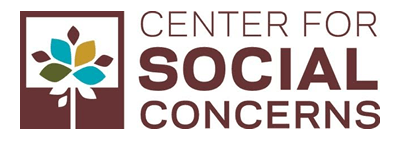 |
 Keynote Speaker
Keynote Speaker
Raymond Offenheiser
Former CEO and President of Oxfam America
Inaugural Director of the Notre Dame Initiative for Global Development
About
Ray Offenheiser is the inaugural director of the Notre Dame Initiative for Global Development and distinguished professor of the practice in the Keough School of Global Affairs, where he serves also on the Keough School’s Leadership Council. He has been an Advisory Board member for the Kellogg Institute for International Studies since 2000.
A widely known nonprofit leader and innovator with a broad range of international development experience around the globe, Offenheiser served for more than 20 years as CEO and president of Oxfam America, a Boston-based international relief and development agency and the US affiliate of Oxfam International. Under his leadership, it grew eightfold and repositioned itself in the US as a leading voice on international development and global trade.
A founding board member of both the ONE Campaign and the Modernizing Foreign Assistance Network (MFAN), he brings more than 40 years of international development experience as a field programmer, grant maker, and executive in Asia, Africa, Latin America, and the US. He has served on numerous boards and advisory bodies for a diverse array of both national and international institutions.
Offenheiser earned a BA from the University of Notre Dame in 1971 and holds an MA in development sociology from Cornell University.
Panel Presenters
Presenters are expected to attend the entirety of the conference, from Friday afternoon to Saturday evening. Due to the number of presenters involved in the conference, we are unable to meet requests for specific presentation times. Please plan your travel accordingly.
Panel Presenters will be placed with 1-3 other students whose research is related. A panel will last for 1 hour and 30 minutes and consist of student presentations, feedback from a faculty moderator, and discussion & questions with the audience. Please be aware that going over time will infringe may infringe upon the time allotments of other presenters.
Length: 15 minutes
Format: Presenters typically utilize a PowerPoint, Prezi, etc. to present their project. We encourage creativity with graphs, charts, videos, etc.
A laptop, projector, screen, and podium will be available in each of the session rooms. You will not be able to use your own laptop for your presentation.
What to include in your presentation:
- Brief introduction of research and relevance
- Methodology
- Discussion of results and conclusion (this should be the bulk of the presentation)
- Relate your research to the conference theme.
Your final presentation (be it PowerPoint, Prezi, paper, etc.) will be due by Monday, February 12, so that panel moderators will have adequate time to review and prepare their remarks and feedback. Following the conference, your presentation may be placed on our website to serve as a guideline for next year’s presenters.
Poster Presenters
All poster presenters must present your original work on a poster sized 60 inches by 40 inches. Posters should give viewers a clear idea of your work, even when you are not there to explain it, as posters will be up during the entire weekend for conference attendees to view. Individual posters will be given a spotlight between panel sessions in which their work will be featured.
What to include:
- Title & Author
- Background (Maps, diagrams, charts, etc. encouraged)
- Hypothesis or Major Problem
- Methods
- Results
- Development Implications & Discussion
Your poster must include your name, school, and location of research. An easel and foam board (to secure your poster) will be provided for display by the HDC. Posters must be taken down by presenters Saturday after the conference.
Photo Contest Presenters
HDC will alert you of the status of your submission by early February. Finalists are invited to the conference to share with conference attendees about their photo and experience.
- Photos will be enlarged and displayed during the conference.
- Photo presenters may stand with their display and be prepared to discuss their research during the three breaks of the conference on Saturday, and for the second half hour of lunch.
All submitted photos may be used by the University of Notre Dame for publicity or educational purposes and will be properly credited if used.
Information about Accommodation in South Bend
Please see below for information regarding travel to South Bend
Presenters are welcome to stay with a Notre Dame student on-campus or to seek off-campus accommodation in a local hotel. Please review the following options and let us know of your choice when you RSVP. Deadline for your housing request is Friday, January 5. Meals listed in the conference schedule will be provided to presenters at no cost.
With a Notre Dame Student
Presenters have the option of requesting a student host from Notre Dame at no cost. Most Notre Dame students live on campus, within easy walking distance of the conference location. On-campus student hosts may or may not be conference presenters or attendees. Again, it is free to stay with a student.
In a Local Hotel
In order to help accommodate presenters, we have reserved a block of rooms at three local hotels (listed below) under some variation of the name ND-Kellogg/Human Development Conference. Please make reservations under this name in order to receive the conference discount. To receive these reduced rates, reserve your hotel room no later than Thursday, February 1. The discount is not guaranteed following this date.
To keep costs down for students, we are offering to pair presenters to split the cost of the room. We will introduce paired presenters to each other via email. Presenters will be in charge of contacting each other and making the hotel room reservation. Please remember that these pairings are random, and we are not responsible for any personal differences that may arise. We cannot guarantee that presenters who express interest in having a roommate will receive one. Please indicate your preferences in the RSVP survey.
The Quality Inn in South Bend has rooms that will be available at a rate of $69/night plus tax. The room block is entitled ND-Kellogg/Human Development Conference. The hotel is located 2.3 miles from campus. A breakfast bar is offered each day and is included in the above price.
Quality Inn
215 Dixie Way South
South Bend, IN 46637
(574) 277-3211
The Inn at Saint Mary’s has rooms that will be available at $122/night plus tax. The room block is entitled ND-Kellogg Institute/Human Development Conference. Complimentary hotel shuttle service to Notre Dame’s campus is available. It is located on St. Mary’s College campus, less than 2 miles from campus. A breakfast bar is offered each day and is included in the above rate.
Inn at Saint Mary's
53993 US 933
South Bend, Indiana 46637
(574) 232-4000
Toll free (800) 949-8627
www.innatsaintmarys.com
The Morris Inn has rooms that will be available at $225/night plus tax. The room block is entitled ND-Kellogg Institute/Human Development Conference. It is located on the Notre Dame campus.
The Morris Inn
1399 Notre Dame Avenue
Notre Dame, Indiana 46556
(574) 631-2000
Toll free (800) 280-7256
www.morrisinn.nd.edu
Helpful Information for Travel to South Bend
The majority of the conference will be held at the Hesburgh Center for International Studies at the University of Notre Dame, located in Notre Dame, Indiana. (Note: This is not to be confused with the Hesburgh Library, which is also located on the Notre Dame campus. You can distinguish the two by noting that the library is 13 stories tall, while the Hesburgh Center is not).
Please note that the University of Notre Dame is in the Eastern Time Zone.
Notre Dame, Indiana, is 90 miles east of Chicago. The surrounding communities are South Bend and Mishawaka.
Car Travel
From the north, east, or west (ex. Chicago)
The University is located South of the Indiana Toll Road (Interstate 80/90).
- Take exit 77 toward IN-933/US-31/South Bend/Notre Dame from I-80/90 E.
- Turn right onto Indiana 933 South/South Dixie Way. Proceed 1.1 miles.
- Turn left at the 4th stoplight onto Angela Boulevard. Proceed 0.8 miles.
- Turn left at the 1st stoplight onto Notre Dame Avenue.
- Turn right at the 1st stop sign onto Holy Cross Drive.
- Signs will identify visitor parking.

From the south (ex. Indianapolis)
- Take US 31 North. It becomes Indiana 933/US 31/Michigan Street just south of South Bend.
- Proceed on Indiana 933/US 31/North to Angela Boulevard, which is the second stop light north of the St. Joseph River.
- Turn left at the 1st stoplight onto Notre Dame Avenue.
- Turn right at the 1st stop sign onto Holy Cross Drive.
- Signs will identify visitor parking.
Air Travel
Flying into the South Bend Regional Airport: Arriving at the South Bend Regional Airport can be a convenient way to travel to Notre Dame. Airlines serving South Bend include Allegiant, Delta, and United Airlines.
Cab fare from the South Bend Regional Airport is approximately $15. There are typically cabs waiting outside the airport. A list of South Bend Regional Airport approved cab services is available on the airport website at http://flysbn.com/transportation/taxi-train-bus/
Flying into Chicago Airports: Flying into Chicago O'Hare or Midway Airport can be a cheaper way to travel to Notre Dame. Bus transportation is available from both Chicago airports directly to the campus of Notre Dame. Train transportation is also available from Chicago to the South Bend Regional Airport via the South Shore Line.
Train Travel
From Chicago O’Hare to Millennium Station
Follow the signs in the airport for trains to the city. In the train area, follow the flashing yellow light to find the train that is loading passengers. Take the Blue Line towards the Forest Park Terminal to Washington station. From that stop, walk one block north on Dearborn Street and 3 blocks east on Randolph Street to arrive at Millennium Station, where you can board the South Shore Line to the South Bend airport.
On the way back to Chicago O’Hare, take the South Shore Line to Chicago’s Millennium Station. Walk 3 blocks west along Randolph Street to Dearborn Street. Turn left on Dearborn Street and proceed to the Washington subway station for the Blue Line. Follow overhead signs towards Chicago O'Hare. Ride the train to the O'Hare Station, which is at the end of the line. The train ride to O’Hare takes approximately 40 minutes and runs every 5–10 minutes depending on the time of day.
From Chicago Midway to Millennium Station
Follow the signs in the airport for trains to the city. Board the Orange Line and take it to the Randolph/Wabash station. Walk 1 block east on Randolph Street to arrive at Millennium Station, where you will board the South Shore Line to the South Bend airport.
On the way back to Chicago Midway, take the South Shore Line to Chicago’s Millennium Station at Randolph Street. Walk 1 block west along Randolph Street to Wabash Avenue and enter the Randolph/Wabash station for the Orange Line. Follow signs and take the train marked with orange signs to Midway Airport. Ride to the Midway Station, which is at the end of the line. The train ride to Midway takes about 30 minutes and runs every 5–10 minutes depending on the time of day. Follow the signs and take the overhead passage to the airport terminal, about one-quarter mile.

From Chicago’s Millennium Station to the South Bend Regional Airport
The South Shore Line commuter train travels from downtown Chicago to the South Bend Regional Airport. One-way fare is $13.25. The train takes about three hours to travel from Millennium Station to South Bend, but keep in mind the one-hour time change between South Bend and Chicago. Additional information is available at www.nictd.com or by calling (800) 356-2079. To arrive at the downtown terminal of the South Shore Line in Chicago (Millennium Station), take the Blue Line train from O’Hare Airport or the Orange Line train from Midway Airport (see above).
From Cities across the Country
Amtrak runs directly to South Bend. After arriving at the station, you would then need to call a taxi or uber to take you to the Notre Dame campus. Please refer to www.amtrak.com for schedules.
Bus Travel
From Chicago Airports: Coach USA provides bus transportation from O’Hare and Midway airports in Chicago and runs directly to the Notre Dame campus. Round trip tickets cost $75, and one-way tickets cost $42. Coach USA buses run approximately every two hours. Please refer to www.coachusa.com/tristateunitedlimo/ for schedules.
From Midwestern Cities: If you are traveling in the Midwest, check for low fares from Megabus, which has stops in Chicago. You would then need to take the train or another bus to South Bend. Schedules and stations are available at www.megabus.com/us/.
From Cities across the Country: Greyhound stops at South Bend Regional Airport. Schedules and stations are available at www.greyhound.com.
Meet the Core Team
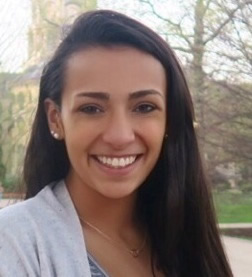
Abigail Midlige - Conference Cochair
Abigail is a senior majoring in Biology with a minor in International Development Studies from Bernardsville, New Jersey. Her research interests include global health, specifically maternal health care practices. This past summer she designed and implemented a research project looking at the use of traditional birthing attendants in Fort Portal, Uganda. In previous years, Abigail served the HDC as chair of the Liaisons Committee and chair of the Photo Exhibition.

Tommy Emmet - Conference Cochair
Tommy is a senior Neuroscience and Behavior major/pre-medical student, minoring in International Development Studies from Dallas, Texas. His research interests include public health and medical anthropology in West Africa, having travelled to Sierra Leone twice and Ghana once. This past summer, he travelled to Sierra Leone to research how the Ebola outbreak has affected trust in medical institutions. In the past, he has served the HDC on the Abstracts Committee and as chair of the Liaisons committee.
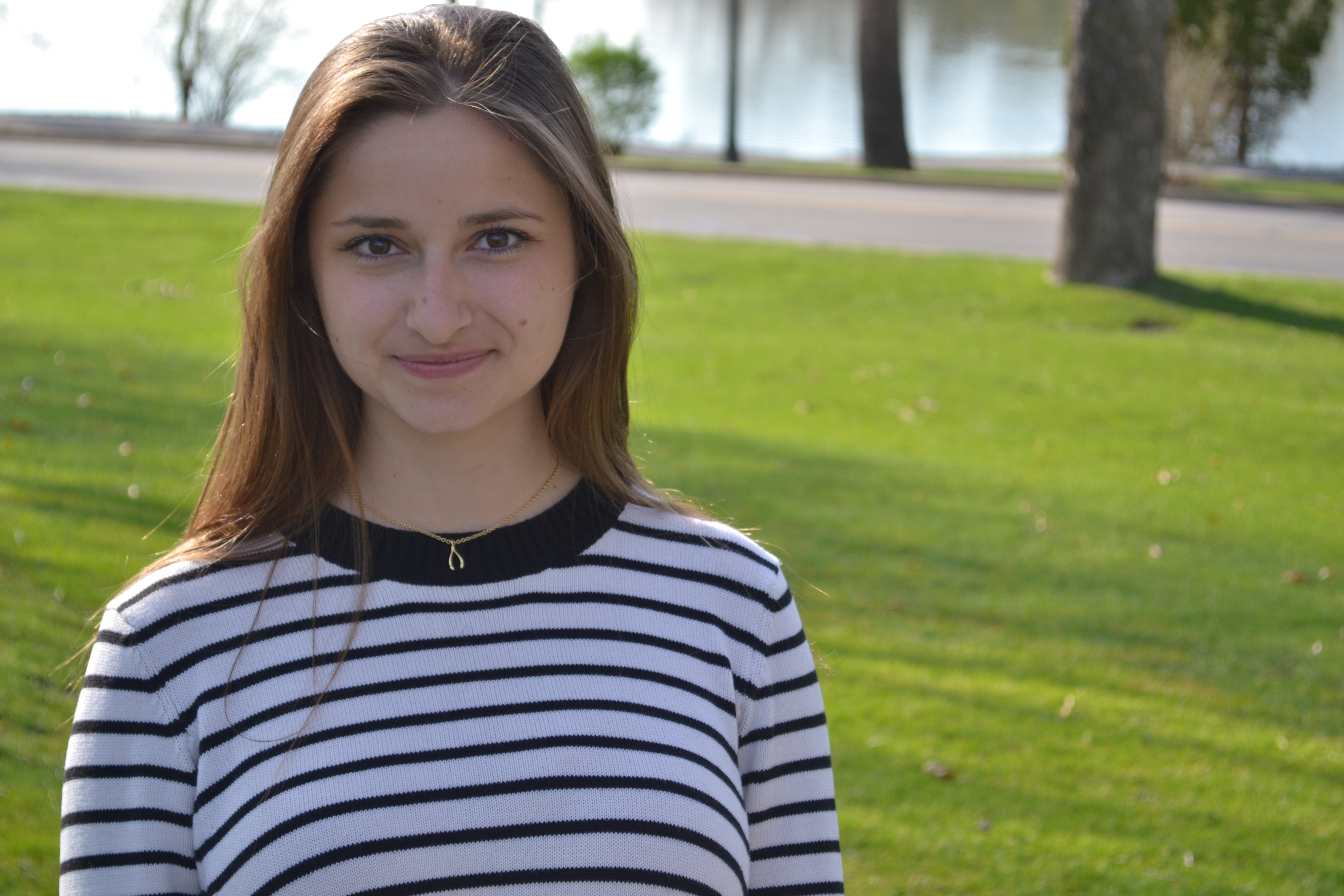
Madeline Coole - Marketing Committee Cochair
Madeline is a junior majoring in international economics and Spanish, with minors in international development studies and German. She is from Overland Park, Kansas, but has studied abroad in Berlin, Germany, and worked with the social business Social Entrepreneur Corps in Quetzaltenango (“Xela”), Guatemala. Through interacting with migrant communities in Berlin who spoke little to no English or German and consulting for educational nonprofits in Xela, Madeline saw how education is an incredible tool for empowerment, particularly for disadvantaged groups, fostering her interest in access to education and teacher quality. In the past Madeline has enjoyed the Human Development Conference as a participant and is excited to contribute as a chair this year.
Lily Falzon - Abstracts Committee Cochair
Lily is a senior majoring in sociology with a minor in Chinese from Huntington Beach, California. Her research interests are in the field of global health, where she is primarily concerned with traditional forms of medicine and comparative healthcare systems. She spent the last summer in Hong Kong and mainland China interviewing practitioners of traditional Chinese medicine to examine how Western biomedicine affects the development of their practice. Last year, Lily was a member of the HDC Liaisons Committee.
Ruying Gao - Liaisons Committee Cochair
Ruying is a junior from Beijing, China. She is a mathematics major with minors in history, international development studies, and PPE (philosophy, politics, and economics). Her research interests revolve around law and development, with particular foci on education, finance, and science and technology. Last year, Ruying served as a member of the HDC Logistics Committee.
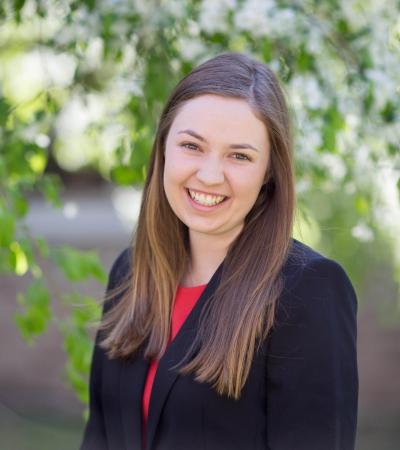
Allison Hogan - Marketing Committee Cochair
Allison is a senior Neuroscience and Behavior major with a minor in International Development Studies from Cincinnati, Ohio. Her research interests include community-based development approaches and global health, specifically mental health. This past summer she completed a research project in Chiapas, Mexico interviewing community health workers about mental health care delivery in rural communities.

Seok Hee (Jenny) Jang - Photo Exhibition Chair
Jenny is a junior from La Crescenta, California, majoring in science business with minors in international development studies and Korean. Her research interests combine economics and health, specifically focusing on correlations between education and innovation. She is currently looking into policies for disabled persons and the relationship between prostitution and sex ratio in South Korea. In the past, she has worked on the HDC Logistics Committee.
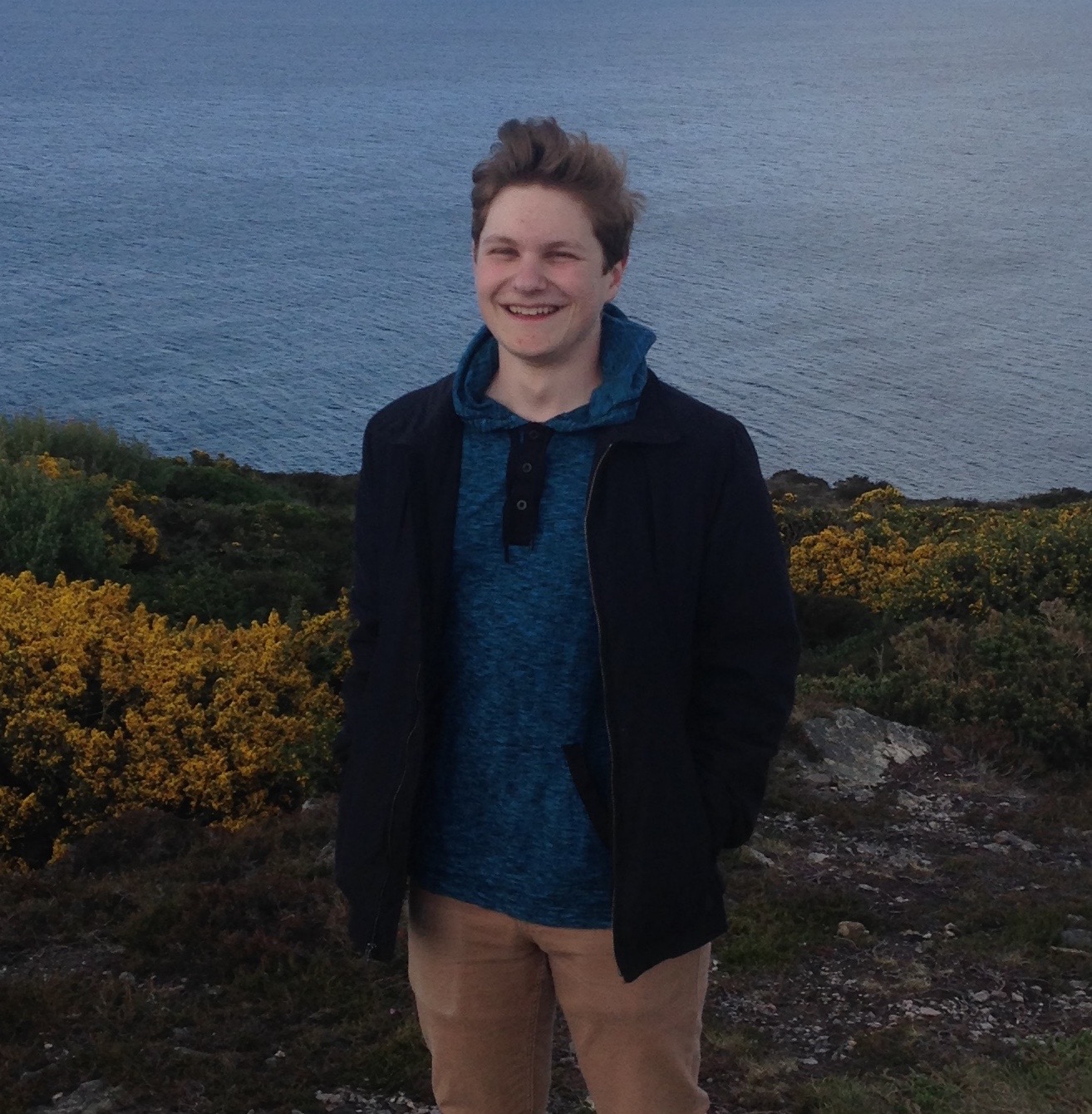
Dominic Scarcelli - Logistics Committee Cochair
Dominic is a senior political science major with a minor in public service from Joliet, Illinois. His research interests include measuring democratic health. In the past, he has been a member of the HDC Logistics Committee.
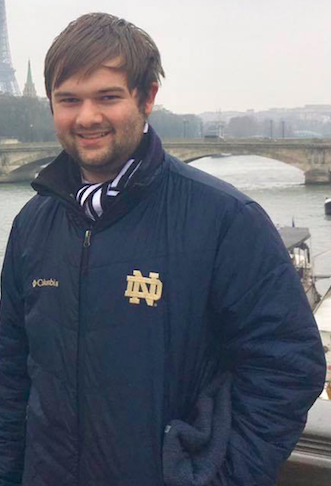
Zach Spahr - Liaisons Committee Cochair
Zach is a senior international economics and political science major from McLean, Virginia. His interest in development lies in improving access to and quality of education in the developing world. During the last two years, he served on the Abstracts Committee for the HDC.
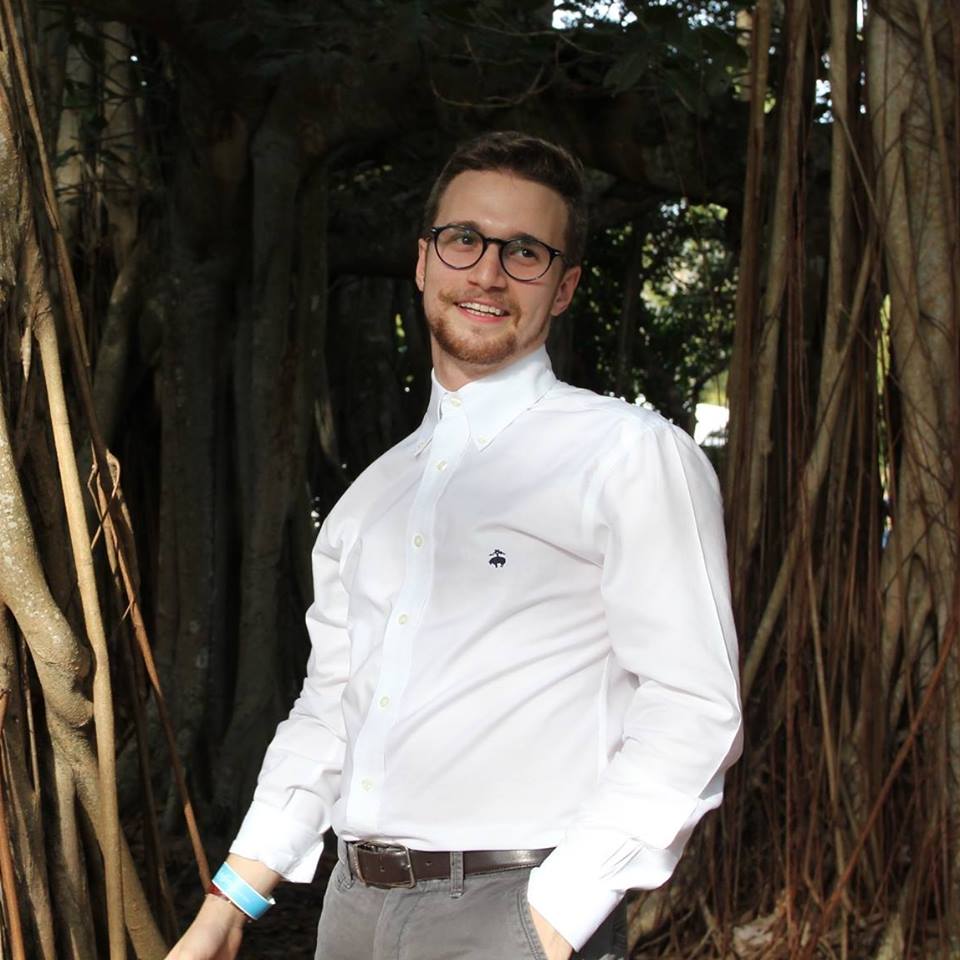
Francesco Tassi - Abstracts Committee Cochair
Francesco is a senior international economics and peace studies double major with a minor in international development studies from Florence, Italy. As a dual citizen and who speaks four languages, his interests focus on the integration of Sub-Saharan migrants in Italy, and refugee camp economies to counter protracted encampment of refugees. This past summer he researched six small towns across five Italian regions to gauge the perceptions of integration from citizens and Sub-Saharan migrants. Last year Francesco was a member of the HDC Abstracts Committee.
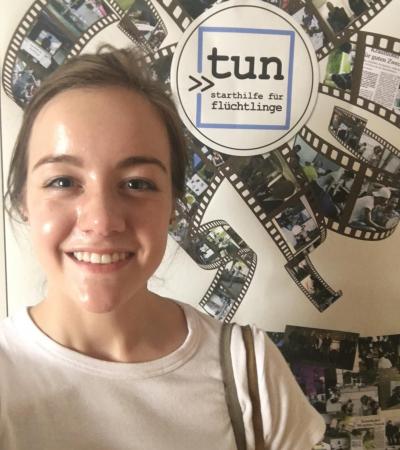
Rachel Warne - Logistics Committee Cochair
Rachel is a senior majoring in the Program of Liberal Studies. She is minoring in the Glynn Family Honors Program and international development studies. Rachel is originally from Sacramento, California, but she has also lived briefly in Washington, DC, and London in recent years. Over this past summer, Rachel spent time in Germany and North America studying the efficacy of aid programs that include services for female refugees. Last year, Rachel worked on the HDC Abstracts Committee.
Submissions are now closed for the 2018 Human Development Conference annual Photo Exhibition. We will alert you of the status of your submission by early February. Finalists are invited to the conference to share with conference attendees about their photo and experience.
Photos will be posted online after the exhibition, which this year focused on the conference theme, “Decades of Development: Contextualizing the Past, Envisioning the Future,” encouraging students to both reflect on development over the past decade and contemplate a better future. Undergraduate students submitted their own original photos in the following four categories:
- Faces of Human Dignity: People, and the Inspiration for Development
- Development Over Time: Representations of How Development Has Impacted Communities
- Development, Innovation, and Advancement: How Various People, Projects, and Technological Advances Have Shaped Development
- Sustainability and Development: The Landscapes, Conditions, and Settings in which Development Takes Place
Stay tuned to see the photos in late February!
The Ford Program in Human Development Studies and Solidarity and the Kellogg Institute for International Studies, part of the Keough School of Global Affairs at the University of Notre Dame, announce the 10th annual Human Development Conference.
For ten years, the Human Development Conference has provided a forum for undergraduate students from a wide range of backgrounds and disciplines who are passionate about development to engage in dialogue about development research. In this anniversary year, participants are invited to reflect on events of the last decade that have changed the world’s geopolitical climate and the impact they have had on the practice of development. Celebrating ten years of striving for human development through research, collaboration, and innovation, the 2018 Human Development Conference presents an opportunity to learn from those who have joined us over the years and look toward the future to enact sustainable and meaningful change.
We welcome and invite all undergraduate students to share their research experiences from a broad spectrum of topics in development, including but not limited to:
|
|
|
For those undergraduate students who are interested in presenting, please submit an abstract of your research project and complete the survey questions. The priority submission deadline is Monday, November 20th, 2017 at 11:59 PM. The final submission deadline is Monday, November 27th, 2017 at 11:59pm. Invitations for participation will be extended in early December. Students who accept invitations to present at the conference will be responsible for securing funding for travel and other related expenses.
More information, such as sample abstracts, tentative conference schedule, and helpful tips for presenters, can be found on the tabs above and on our Facebook page at facebook.com/notredamehdc.
We hope that you will join us in participating in this important conversation!
Abstract Guidelines
A good abstract that will be considered for the 2018 Human Development Conference does each of the following:
- Briefly introduces the reader to the topic by providing relevant background information
- Clearly expresses the research question that was asked
- Provides concrete details about the methodology used (including where the study was conducted, how many participants were involved, recruitment method, and type of data analysis)
- Presents research findings that answer the proposed question
Download the Powerpoint presentation from the abstract writing information session, or watch the video of the session below.
Abstracts must be no more than 250 words long. Sample abstracts that have been accepted to previous Human Development Conferences are provided below:
Sample Abstract 1
Sub-saharan Africa currently bears 24% of the global disease burden, yet is home to just 3% of the global health workforce (Anyangwe 2007). Despite this crippling disease burden, nearly 45% of graduating physicians in Uganda plan to emigrate upon graduation (Kizito 2015). Medical brain drain refers to this human resource crisis that plagues the healthcare systems of many developing countries, where newly graduated physicians choose to leave the country after receiving their formal medical education. For over a decade, public health leaders have attempted to meet this critical human resource shortage through an increase in the availability and efficacy of medical education (Akuffo 2014). Through in-depth interviews with over 40 medical students at Makerere University in Kampala, Uganda, my research attempts to uncover the complex push and pull factors that affect the emigration decisions of Ugandan medical students. While past research points to low pay and high overburden on health professionals as the impetus of the brain drain, my project identifies sociocultural factors that influence emigration like social ties, national pride and shame, socioeconomic background, as well as lived experience in the health system. These results provide tangible recommendations for public sector managers and policy makers in Uganda to help curb brain drain in their health system.
Sample Abstract 2
Although the Ministry of Health recommends yearly cervical screening through Pap tests, Nicaragua has one of the highest cervical cancer mortality rates in Latin America due to pervasive barriers that women face in accessing healthcare. One aim of this study was to explore strategies to mitigate these barriers in culturally appropriate and feasible ways, including primary prevention and secondary prevention through Human Papillomavirus (HPV) self-collection. HPV self-collection is an innovative and empirically based strategy shown to increase cervical cancer screening for women in lower resourced settings. Utilizing a collection brush, women can collect their sample in a setting of their choice and send the sample to get tested. We partnered with the Ministry of Health, a local human rights NGO and interprofessional collaboration in Bluefields (the largest city on the Caribbean Coast) to conduct a community-based needs assessment, key informant interviews (n=12), focus groups (n=25) and a systematic environmental scan, all guided by the socio-ecological model. We audio-recorded and transcribed verbatim all data. We analyzed descriptive statistics and through thematic analysis, we analysed qualitative data. According to our findings, the main barriers were: cultural obstacles, machismo being the main issue, misconceptions about prevention, and a lack of systematic and comprehensive sexual health education. If rolled-out under specific circumstances, HPV self-collection could increase access to cervical cancer screening for women in Bluefields and the surrounding rural areas by overcoming these barriers, thus empowering women to take agency over their health. More research is needed to pilot this intervention.
Sample Abstract 3
Dubbed as the worst country to be disabled by the British Broadcasting Corporation, 95% of people in Ghana have no access to rehabilitative services (Tinney 11-12). Without a systemic chronic disease policy, organizations and researchers have paid little attention to study amputees and invest in rehabilitative care despite their unprecedented growth. Although there are clear financial, logistical, and social barriers to receiving care, it is unclear what factors impact an amputee’s decision to be treated or whether a prosthesis is desired in the first place. The study aims to research the ability, choice, and desire to pursue prosthetic services from the viewpoint of amputees. Between July and August 2016, data was collected through 24 interviews with healthcare providers, amputees, and prosthesis-users in the Cape Coast and Accra region. Ethnographic research methods were used to analyzed key distribution and health facilities which found that (1) rehabilitative facilities in Ghana for prosthesis are severely under-resourced due to (2) the lack of priority funding in rehabilitative services. (3) The inability to access is compounded by the lack of information on prosthesis centers and their sparse distribution, and (4) in addition to financial barriers, social stigma and isolation may play a larger part in the amputee’s decision-making process. This study makes recommendations to healthcare organizations to address the plight of amputees in Ghana. As the number of amputees rise worldwide, a targeted approach in addressing the needs of amputees is invaluable for their reintegration into society and to address weaknesses within current healthcare systems.
Sample Abstract 4
This study evaluated the impact and technical progress of the Sustainable COmprehensive REsponses (SCORE) for vulnerable children and their families’ project, as implemented by St. Francis Health Care Services (STFHCS), in the Nyenga and Wakisi Sub Counties during its original 5-year tenure. This study was initiated on June 6th, 2016 and was fully completed on July 22nd, 2016 with the submission of the final report. The motivation for this study was the need to identify the best practices and capacity gaps of the SCORE project in order to inform the project implementation of STFHCS and the SCORE project implementation for the 2 year extension. The data collection methods used in this study included home visits, vulnerability assessment tool review, project report review, focus group discussions, and key informant interviews. Generally, the SCORE project has had a positive impact in reducing the vulnerability of beneficiaries in Nyenga and Wakisi Sub Counties. With the data collection methods, it was found that the economic strengthening (SCORE objective 1) activities were the most appreciated and praised by the beneficiaries. However, it was also the area of least reduced vulnerability. The area that saw the greatest reduction in beneficiary vulnerability was food security (SCORE objective 2). This success was attributed to the nutrition dialogues and urban horticulture trainings. The activities that were ineffective and/or in need of correction included the apprenticeships, bank linkages, farmer field schools, child friendly schools, and community skills trainings.
Past Conferences
2017
Development with Dignity: A Human-Centered Approach to Progress
February 24–25, 2017
In order to implement the Sustainable Development Goals, the global community needs to shift from theory to practice – from policy to individuals – refocusing its efforts by placing humans at the center of the sustainable development agenda. Creating solutions to critical issues that afflict the world’s populations today requires not only a shift in scale but the recognition and continual affirmation that the dignity of peoples on all sides of the path to progress must be the central focus of development.
2016
Re-Imagining Development: Pursuing Good in a Changing World
February 26–27, 2016
2015
Envision, Enact, Evaluate: Sustaining Momentum in Development
February 27-28, 2015
2014
Transforming Development: New Actors, Innovative Technologies & Emerging Trends
February 28 – March 1, 2014
The theme of the sixth annual Human Development Conference, "Transforming Development: New Actors, Innovative Technologies & Emerging Trends," was inspired by the idea that development is an evolving process. A widening set of stakeholders and rapidly advancing technologies raise new possibilities for the field. The conference was a chance to reflect on both successes and failures in development, while analyzing opportunities created by these new trends.
2013
In the Field: Cultivating Collaboration and Innovation
February 8-9, 2013
The fifth annual Human Development Conference, “In the Field: Cultivating Collaboration and Innovation,” brought together more than 200 students, faculty members, and development experts from around the world, including keynote address speaker, Sara Sievers, the founding executive director of the Center for Globalization and Development at Columbia University’s Earth Institute. Over 70 students presented their own research, representing fieldwork from more than 30 countries. Topics addressed ranged from evaluating the perceptions of trust among Peruvian sexually abused victims to combating cancer in Samoa and implementing organic agricultural certification in India.
2012
Faces Behind the Figures: Visions of Prosperity, Progress, and Human Potential
February 10-11, 2012
The fourth annual HDC, “Faces Behind the Figures: Visions of Prosperity, Progress and Human Potential,” took place during February 2012, culminating in a keynote address given by Not For Sale’s co-founder and executive director Mark Wexler. The conference featured 250 students, faculty and development experts from across the United States and beyond. Eighty-two students presented research on development-related topics conducted in over 35 different countries. Panels addressed topics ranging from food security and agricultural development to post-conflict transformation and the effectiveness of foreign aid.
2011
Unleashing Human Potential: Global Citizens in Pursuit of the Common Good
February 11-12, 2011
The third annual Human Development Conference, “Unleashing Human Potential: Global Citizens in Pursuit of the Common Good,” brought together 73 undergraduate and graduate student-presenters with research experiences in over 30 countries. The Ford Program also welcomed a group of two students and three faculty members from Uganda Martyrs University, the program’s partner university in on-site research and development projects. The two-day conference concluded with a dinner banquet and keynote address given by microfinance specialist David Roodman from the Center for Global Development.
2010
People, Power, and Pragmatism: The Future of Development in Our Changing World
February 26-27, 2010
The second annual Human Development Conference, “People, Power, and Pragmatism: The Future of Development in Our Changing World,” was held in February of 2010. More than doubling in size from the previous year, the conference grew to 80 students with research experiences in 38 different countries. Thirty-eight colleges and universities from across the globe were represented. Ray Chambers, the United Nations Secretary-General’s Special Envoy for Malaria, spoke on his commitment to the Millennium Promise and Malaria No More. The keynote address was delivered by Joseph Sebarenzi, the former speaker of the Rwandan Parliament, who spoke passionately about his experience as a genocide survivor and his efforts to create reconciliation, peace and development in Rwanda and the world.
2008
Solidarity in Pursuit of Authentic Human Development
Saturday, February 23, 2008
In 2008, together with the Center for Social Concerns, the Ford Program sponsored a student research symposium entitled “Solidarity in Pursuit of Authentic Human Development.” Twenty-eight students presented at the event, including students from Uganda Martyrs University. Raymond Offenheiser, president of Oxfam America, delivered the keynote address.
In November of 2008, the symposium grew into a full conference sponsored by the Ford program and cosponsored by the Center for Social Concerns and the School for International Training. “Innovation in the Service of Human Dignity” featured graduate and undergraduate student presenters from 29 universities and representing 28 countries of research. Moderators from around the country also attended the conference to facilitate panel discussions. Peter McPherson, the former head of USAID, delivered the keynote address.






